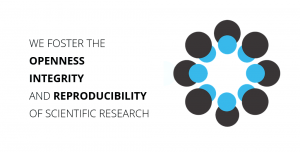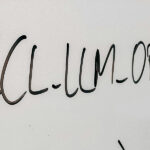By Ernesto Spinak
The classic paradigm of scientific activity shows that this is a global, cooperative venture where scientists present their findings in an unbiased and honest way, and are open to criticism and corrections from their colleagues. Such have been, at least for a few decades, the ideas promoted by Robert Merton in his The Sociology of Science1 and by Popper in Conjeturas y Refutaciones2
Is this true? Is scientific activity subject to rigorous control which allows for the removal of any biases and errors? Are the protective mechanisms which ensure transparency functioning efficiently? The readers of this blog know the answer.
Is it possible to introduce a system to improve the credibility and validity of the results of research that is published in scientific journals? An efficient method would be to ensure the reproducibility of experiments, from technical and statistical perspectives, by independent laboratories. Likewise, the disclosure of sources of funding would be important, and incorporating innovations such as CrossMark® to provide information on retractions, whatever the reasons may be.
This is the matter addressed by the journal Science in its recent issue of June 26 which is dedicated to two key commentaries from teams lead by Bruce Alberts3 and B. A. Nosek4, respectively, and on which we comment below.
Nosek and his colleagues point out that incentives for quality and correction are counterproductive in light of the pressure to publish original and positive results, while negative results are stored away and left unpublished. Also, the reward system in terms of money and promotion in academic careers measures the number of publications and not their quality. One of the conclusions that Nosek recommends is for universities and funding agencies to insist upon ethics in research on the part of academics and students.
Alberts states that if science is to serve to improve our understanding of the world, and preserve its role as the engine of our economy and protect the esteem in which society holds it, scientists must safeguard its rigor and reliability in the face of challenges from an ecosystem of research which is developing in dramatic and disturbing ways. The scientific community must participate in an ongoing dialog.
….Ok, so far so good, we already knew this, this adds nothing new. So, where is the innovative initiative?
Towards the end of the commentary, Alberts informs us that in September of this year there will be a report presented on the integrity of science which will serve as a catalyst for this dialog. He then presents us with some guidelines for journals which help to promote transparency, openness and reproducibility in a culture of Open Research (also known as Research 2.0).
These Transparency and Openness Promotion (TOP) Guidelines have been published by the Center for Open Science5 which was created in 2014 and is made up of more than 100 mainstream journals and dozens of research institutions. The guidelines divide the standards into eight categories and three levels of transparency. It will be the journals themselves that will decide if an article will be published or not depending on the level of compliance with some of these standards.
In summary, the eight standards in the TOP Guidelines are:
| Transparency standards | Comment |
| In citation | Applies to bibliographies, data and research materials |
| In data | Enough to permit replication. |
| In analytical methods or codes | Avoid vague or incomplete reports on methodologies |
| In research materials | Encourages the use of trusted repositories |
| In design and analysis | Encourages the use of trusted repositories |
| In preregistration of studies | Facilitates the discovery of unpublished research, and allows the distinction between confirmatory and exploratory research (hypothesis-testing vs. hypothesis-generating) |
| In preregistration of analysis plans | |
| In replication | Uses Registered Reports with peer reviewed results to decide on the publication of the manuscript in question. |
For this initiative to be successful, it is the journals that will have to play a key role in the process of scholarly communication. Scientific authors recognize the value of transparency, openness and reproducibility. To the extent that these rules are implemented in professional scientific journals, authors will understand them and will apply them more rigorously.
Notes
1. MERTON, R. K. The Sociology of Science: Theoretical and Empirical Investigations. University of Chicago Press: Chicago, 1973. Available from: http://scholar.google.com/scholar_lookup?title=The%20Sociologe%20of%20Science%3A%20Theoretical%20and%20Empirical%20 Investigations&author=R.%20Merton&publication_eear=1973
2. POPPER, K. Conjeturas e Refutaciones: El desarrollo del conocimiento científico. Ediciones Paidós: Buenos Aires, 1983.
3. ALBERTS, B., et al. Self-correction in science at work: Improve incentives to support research integrity. Science. 2015, vol. 348, nº 624, pp. 1420-1422. DOI: 10.1126/science.aab3847
4. NOSEK, B. A., et al. Promoting an open research culture. Science. 2015, vol. 348, nº 6242, pp. 1422-1425. DOI: 10.1126/science.aab2374
5. Transparence and Openness Promotion (TOP) Guidelines. Center for Open Science (COS). Available from: http://centerforopenscience.org/top/
References
ALBERTS, B., et al. Self-correction in science at work: Improve incentives to support research integrity. Science. 2015, vol. 348, nº 624, pp. 1420-1422. DOI: 10.1126/science.aab3847
MERTON, R. K. The Sociology of Science: Theoretical and Empirical Investigations. University of Chicago Press: Chicago, 1973. Available from: http://scholar.google.com/scholar_lookup?title=The%20Sociologe%20of%20Science%3A%20Theoretical%20and%20Empirical%20 Investigations&author=R.%20Merton&publication_eear=1973
NOSEK, B. A., et al. Promoting an open research culture. Science. 2015, vol. 348, nº 6242, pp. 1422-1425. DOI: 10.1126/science.aab2374
POPPER, K. Conjeturas e Refutaciones: El desarrollo del conocimiento científico. Ediciones Paidós: Buenos Aires, 1983.
Responsible Science: Ensuring the Integrity of the Research Process. Committee on Science, Engineering, and Public Police of the National Academy of Sciences, Engineering and Institute of Medicine. (National Academies Press, forthcoming) Available from: http://www8.nationalacademies.org/cp/projectview.aspx?key=49387.
Transparence and Openness Promotion (TOP) Guidelines. Center for Open Science (COS). Available from: http://centerforopenscience.org/top/
External Links
CrossMark® – <http://www.crossref.org/crossmark/>
Retraction Watch – <http://retractionwatch.com/>
 About Ernesto Spinak
About Ernesto Spinak
Collaborator on the SciELO program, a Systems Engineer with a Bachelor’s degree in Library Science, and a Diploma of Advanced Studies from the Universitat Oberta de Catalunya (Barcelona, Spain) and a Master’s in “Sociedad de la Información” (Information Society) from the same university. Currently has a consulting company that provides services in information projects to 14 government institutions and universities in Uruguay.
Translated from the original in Spanish by Nicholas Cop Consulting.
Como citar este post [ISO 690/2010]:






![Lack of sustainability plans for preprint services risks their potential to improve science [Originally published in the LSE Impact blog in March/2023] Fotografia de um servidor de rede.](https://blog.scielo.org/en/wp-content/uploads/sites/2/2023/03/taylor-vick-M5tzZtFCOfs-unsplash_thumb.jpg)











Recent Comments